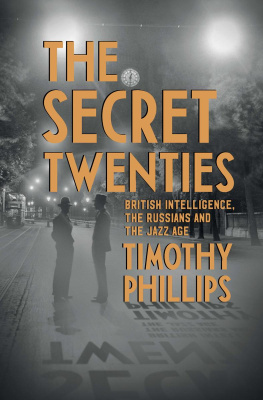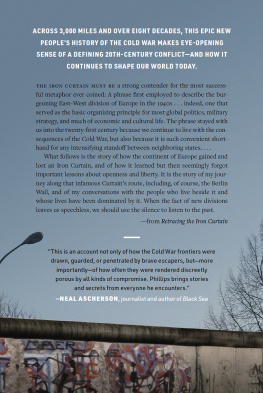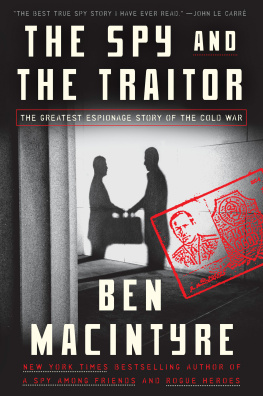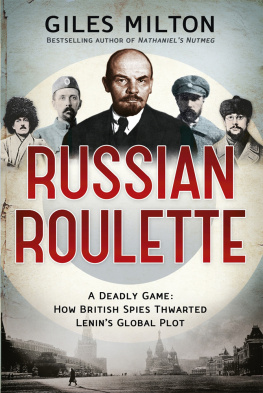Theyre the last Marxists, said Johnny unexpectedly. The last people who believe that class is a total explanation. Long after that doctrine has been abandoned in Moscow and Peking it will continue to flourish under the marquees of England. Although most of them have the courage of a half-eaten worm, he continued, warming to his theme, and the intellectual vigour of dead sheep, they are the true heirs to Marx and Lenin.
Youd better go and tell them, said Patrick. I think most of them were expecting to inherit a bit of Gloucestershire instead.
It had nothing to do with any real person. Why do you bother yourself with us? Go back to Whitehall and look for more spies on your drawing boards [] Its an old illness you suffer from, Mr Smiley, she continued, taking a cigarette from the box, and I have seen many victims of it. The mind becomes separated from the body; it thinks without reality, rules a paper kingdom and devises without emotion the ruin of its paper victims. But sometimes the division between your world and ours is incomplete; the files grow heads and arms and legs, and thats a terrible moment, isnt it? The names have families as well as records, and human motives to explain the sad little dossiers and their make-believe sins. When that happens I am sorry for you.
MISS LUNNS MISFORTUNE
Hidden away in the National Archives in Kew, west London, are a series of documents that recount a sad story from the 1920s.
The story relates to a Miss Ida Lunn (usually known as Edith), who in 1925 took her summer holiday in Devon in the company of her friends, the Mitroff family. The party went to Salcombe, a newly fashionable seaside resort about fifty miles from Exeter, where Miss Lunn lodged with a Mrs Dymond, and the Mitroffs stayed in an adjacent house with a Mrs Stone. The whole party met to take meals together. After some days enjoying the South Devon coast and Salcombes steep, narrow cobbled streets, Miss Lunn was suddenly taken ill and a doctor had to be called. On being examined by the doctor, whose name was Twining, she heard that she had had a miscarriage and was ordered to a hospital some miles away, in Kingsbridge, where she was prescribed several weeks of bed rest under close medical supervision. For the first few days of her stay, her health was said to be so poor that there was even some brief concern for her life.
Miss Lunn was thirty-eight years old, an age at which, in those days, it was considered risky for women to have their first child. Throughout her life, she had marked herself out as a thoroughly modern individual. Eager to earn her own living, politically engaged and well-educated (she spoke three languages
Edith miscarried in the fourth month of pregnancy. The unborn childs father, Andrew Rothstein, was not with her at the time, but this does not mean that she had been abandoned. As soon as possible after the event, Edith wrote a postcard to him telling him of the bad news. Thereafter, Mrs Zika Mitroff took responsibility for keeping him updated, sending regular letters until he was able to come to Devon. The important thing now is that Ida is out of danger , Mrs Mitroff told Andrew on 17 August. She, of course, wants very much to see you as soon as possible, she added. A few days later, Andrew was finally able to get away from London and arrived in Kingsbridge, checking into the Albion Hotel and going straight to Ediths bedside, where he comforted her and commiserated.
Edith was discharged on 3 September, travelling back up to London in the company of the devoted Mrs Mitroff and her son (both Mr Mitroff and Andrew had returned to the capital some time earlier). Edith then spent a further period in a residential nursing home in Hampstead before finally receiving doctors advice that she could resume her normal life. It was, nevertheless, to be a difficult autumn. Edith seems to have avoided her family after what happened. They lived just south of the Thames in Battersea, but her mother wrote in somewhat hurt tones in November, We were expecting you every Sunday. Why have you not been? Edith also received many letters from friends who asked about her poor health and continued to wish her a speedy and full recovery, all of which suggests that, while she was on the mend, her convalescence took longer than expected.
Only in December did a little brightness return, ironically against the backdrop of some bleak winter weather. Edith, daring A hard year was ending on a happier note.
Ediths and Andrews personal lives may seem familiar enough, yet the intimate nature of this story is far commoner in fiction than non-fiction for the simple reason that it is rare to find primary source material of this kind. People guard their private lives carefully; in the past, they did so even more carefully than now, and documents relating to miscarriages, romantic affairs and other personal matters particularly about people who were not celebrities tend not to survive. Such things were frequently not spoken of either, meaning that oral history is unable to fill in the gaps. To read such intimate details about individuals like Edith and Andrew, expressed in their own words, is surprising. And the surprise only grows when we consider that these documents are contained not in some family attic but in the declassified archives of MI5: the vast, sweeping, intriguing and sometimes shocking repository of material that Britains principal domestic intelligence organisation gathered over the decades and is now making available in progressively greater quantities for all to see.
Left to their own devices, Edith and Andrew might well have chosen to tell almost no one about their misfortune in the summer of 1925; it seems probable that Edith did not tell her own mother and father. She may also never have shown anyone else the letter that Andrew sent her from Berlin; often people destroyed such letters in later life in order to keep them truly private. Consequently, although this glimpse of an unconventional couples life in the 1920s is fascinating, it brings with it a sense of intrusion not just because we are reading about the couple now, but also because this personal correspondence was intercepted and analysed in the first place.
Miss Lunn and Mr Rothstein were leading British Communists and, therefore, kept under surveillance by the British state throughout their adult lives. Almost all their actions were minutely scrutinised by MI5 and Special Branch, and sometimes by the Secret Intelligence Service as well; and vast swathes of their private communications were collected and preserved. Whenever they went on holiday; whenever they moved house; whenever they cashed a cheque at the bank, or wrote to friends and family, or even sometimes when they got a new hairstyle, government officials were there to observe and catalogue the developments, trying all the while to understand the motivations of the individuals involved. Even the ownership of a large Airedale terrier seemed briefly to be relevant to the authorities as they attempted to work out the identity of Edith Lunns flatmate.
Sometimes the notes in the files went beyond the mere piecing together of a case, and instead offered a kind of moral commentary. One officer looking into Edith Lunn accused her of masquerading about the country as Andrew Rothsteins wife, in what was a clear expression of distaste for her Bohemian choices. was the clear impression that such individuals represented a threat to national security, and therefore deserved such intrusion as they got.
The 1920s was a decade of peace, yet for those charged with monitoring Ediths and Andrews lives in microscopic detail, it felt like a time of war, and, absurd though it may sound, the tracking of holidays in Devon and the premature ending of a pregnancy were understood to be legitimate and even necessary elements in the fight.














